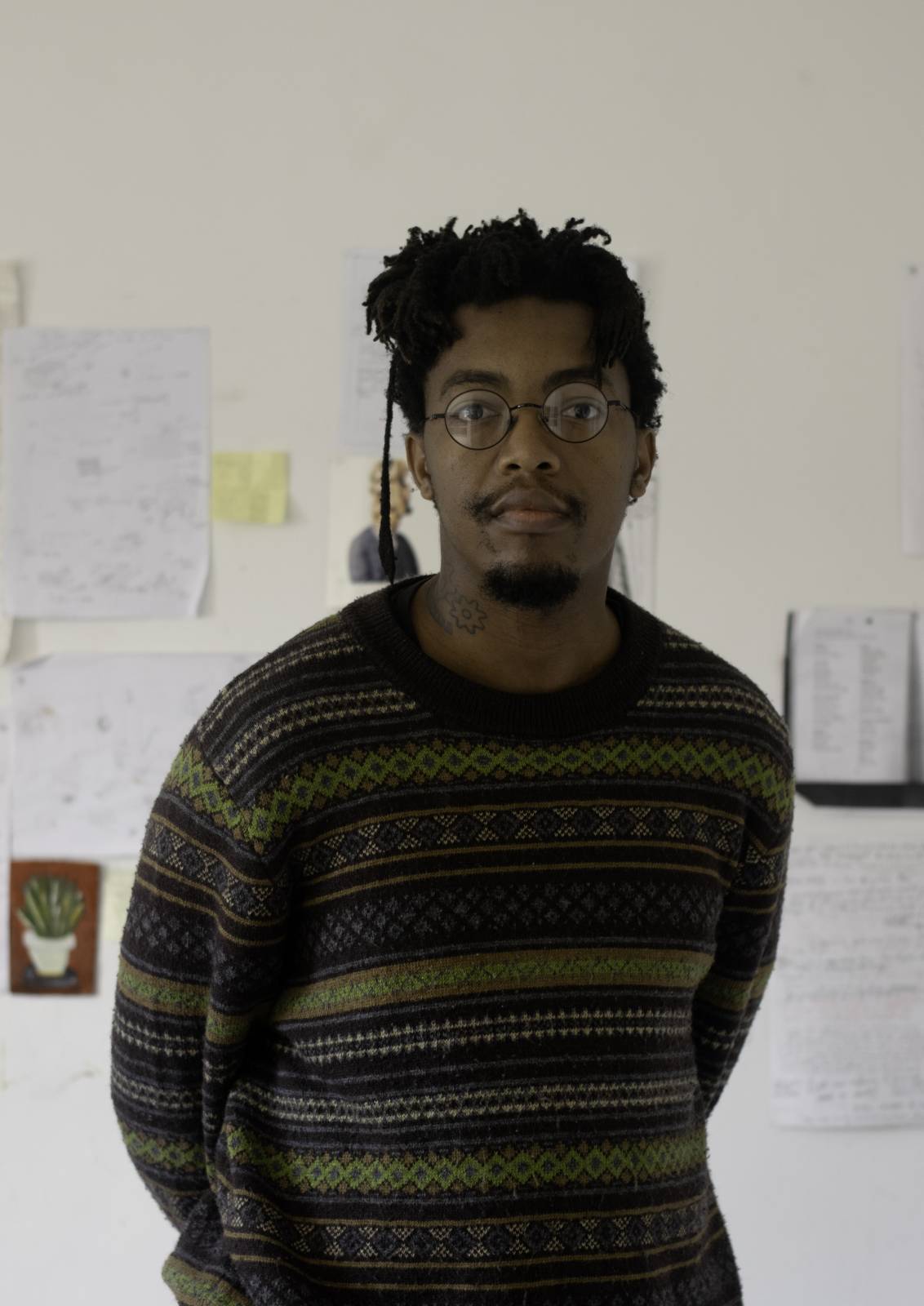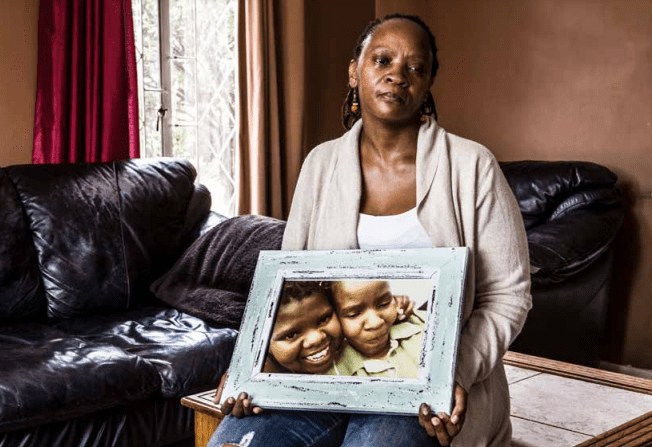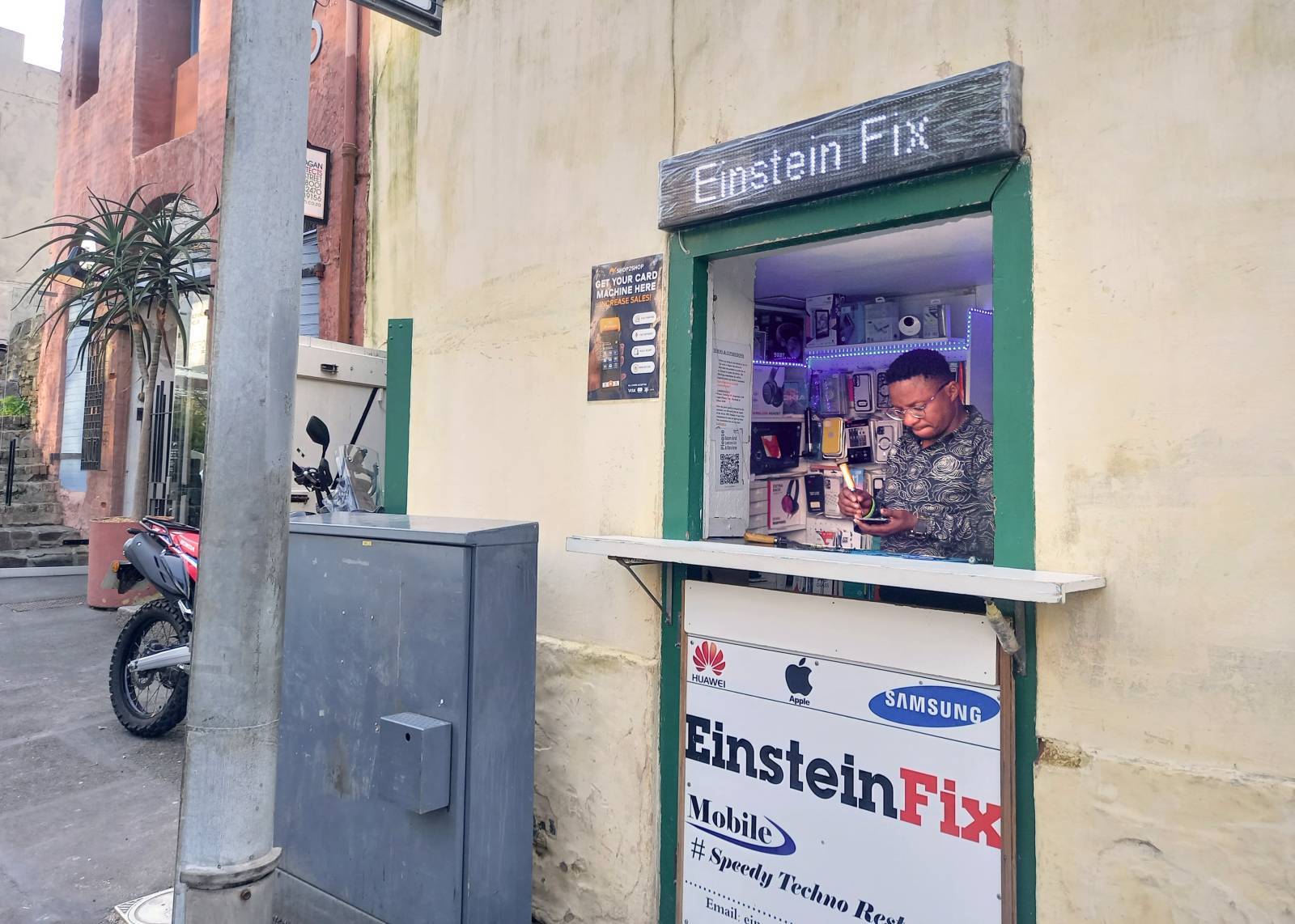Crimson Sands, a historical novel of uprising against tyranny
This is an edited extract from the new novel by Jeremy Vearey, Crimson Sands

Dirk rode into town in the late afternoon to find it a hive of cross-border trade bustling with transport wagons and cattle rustlers from Upington. Ukamas was an eastern frontier town closest to the border with both Bechuanaland and the Cape Colony. A place where money ruled politics and morality was a liability.
Perhaps it was the pending treaty with Johannes Christian, and the flood of German forces, but the brothel business was also booming. Reporters from the Windhuker Nachrichten and Cape Times occupied the local hotel alongside Lieutenant Colonel von Estorff of the Kaiser’s delegation as well as the Cape Mounted Police officers who were to serve as witnesses to the Ukamas treaty.
Madame Zimmer’s brothel was the only alternative, and Dirk was allowed a room only because his money outweighed her prejudice. Her establishment was particularly raucous for a Saturday night.
Dirk sat at the bar with some askaris while their drunken masters fornicated in adjacent rooms. When he had bought them several rounds of drinks, they began to boast about how Johannes Christian had folded.
According to one askari, Colonel von Deimling had sent Father Malinowski to search for Johannes Christian in Lifdod sometime in September, but he wasn’t able to locate him. Malinowski had eventually found Christian and his army camping in the dry Walser dam outside the town of Ariamsvlei, and convinced him to listen to what the Germans were offering.
The signing was scheduled for Sunday, and there were enough forces in town to deal with any trouble. Johannes Christian would not leave Ukamas alive if he refused to sign the treaty.
As Dirk left the brothel, the askari stumbled after him, his revolver in one hand, and shouted: “Hey Klaas, I have an offer for you.”
Dirk turned and braced himself for a bullet, but the askari holstered his weapon and moved closer.
“Can you help us?” The man wobbled and slurred. “There’s a lot of money in it for you if you do. I work for Captain Siebert on the side and he offered a reward to find someone called Dirk Aruseb. He thinks Aruseb might have something to do with the disappearance of Captain Kamptz.”
Dirk waited for the askari to move within reach, headlocked him and snapped his neck. Then he dragged the body into an alley and positioned it at the bottom of the wooden staircase leading from the rear exit on the top floor. Whoever found the drunk askari would conclude that he had fallen down the stairs and broken his neck. Dirk slunk away through the shadows until he reached his horse, then led it out of town and rode for Ariamsvlei.
He had just reached the wall of the Walser dam at sunset when a mounted Bondelswarts patrol accosted him. Despite his protests that he was one of them, they ordered him to dismount, bound his hands with a rope tied to the cantle of the lead rider’s saddle and rode up the dam wall.
Once at the top, he noticed a laager of horses and ox wagons around several armed men on the dry dam floor. The lead rider untied the rope from the cantle and pulled Dirk into the laager.
“Dirk Aruseb!” Agerob ran to Dirk and gestured at the men to untie him.
Agerob led him to where Johannes Christian sat in earnest counsel with his kapteins around the fire.
“I thought you were dead, young man,” Christian said. “Agerob says you come from town. Anything to report?”
Dirk sat down at the command fire and told them about Father Malinowski’s treachery as well as the terms Colonel von Deimling had set for the treaty. Johannes Christian nodded without interrupting. Then he excused Agerob and Dirk, to consult with his men. After a few minutes, he called them back.
“You must return to Ukamas and await our arrival. After the negotiations, you and Agerob must go to Kaptein Kooper and report on the outcome. Tell him that Kaptein Morris has withdrawn his forces to Matjieskloof in the Cape Colony to await further instructions.
“Scotty’s informers in the Cape Mounted Police told him Kaptein Marengo might be released from Tokai Prison after we sign this treaty with the Germans. If so, the war will resume under his command. For the moment, we must reserve our forces and not engage in battle until his return.”
Dirk and Agerob stood up to leave but Christian stopped them. “Now you must join me for our last supper before I sign the treaty with the Germans.”
“!Anu,” Christian ordered and took some ground devil’s thorn leaves from a hide bag and placed them in Dirk’s cupped hands. He poured a few drops of water from an apas into Dirk’s palms and the mixture became a soapy slime.
Dirk washed his hands and the rest of the men followed suit. They sat down around the laager fire as Christian moved to each of them and dished out a spoonful of kudu blood and raw bone-marrow mash from a wooden serving bowl.
Dirk closed his eyes and savoured the zesty fusion of the salty blood and nutty raw marrow as the pâté melted in his mouth. Then Christian gave each of them a tsaopere-i and let them line up behind him at a black three-legged cauldron.
Dirk caught a gamey whiff of kudu meat in a broth tinted green by devil’s thorn stalks. He wolfed down his serving with the ash cake, sated by the liverish taste of the meat and the spicy bitterness of the stalks.
After serving each a cup of warm gu almond coffee, Christian dismissed his men to their posts and invited Dirk and Agerob to join him at the command fire outside his wagon.
“Tomorrow, I surrender to the Kaiser on behalf of the Bondelswarts people.”
Christian’s impassive tone belied the emotion that ought to have accompanied the tears rolling down his face. “There are those who will see this as a betrayal of everything we have ever fought for, and others who will celebrate our humiliation. I stand now at a crossroads similar to the one Kaptein Hendrik Witbooi faced before he signed a protection treaty with the Germans in October 1885.
“Both roads lead to hell, but one is a longer one for our people. Maybe I’ll live to die fighting, as Kaptein Witbooi did last year after Kaptein Marengo persuaded him to return to the path of war. Perhaps you as young leaders of the Bondelswarts will expect the same of me in future.
“But for now, I plead that you and Agerob accept my decision to surrender in the hope that I will honour that call to war when called upon. I humbly ask you to understand that this decision is about our people surviving to fight again when we are reunited under the command of Kaptein Marengo.
“None of us of the old command structure can unify the Bondelswarts in the same way as he did before his imprisonment, and it was his wish that we steer our own course.”
Coward, Dirk thought, and stood up. He looked down at Christian with scorn and said, “I, for one, do not accept your decision to surrender. It seems that in this time of betrayal of everything you say we fought for, only Pastor Shepherd Stuurman still fights with the courage of his convictions.”
“To what end?” Christian rose to face Dirk. “Stuurman is on trial for two murders he and his holy warriors committed in Hopefield two months ago while working at the asbestos mine. After one of his fiery sermons, he took six of his congregation on a violent frolic of his own, marching off to the European compound and beating two white foremen to death.
“He told the judge that he was doing God’s work because the Holy Spirit had told him to kill two white men for the Lord. And thus, he condemned himself and six Bondelswarts soldiers to an unnecessary and undignified death.”
Long before sunrise the next morning Dirk and Agerob rode back to Ukamas. Dirk struggled to make sense of what Kaptein Christian had told him.
How could the war be suspended until Marengo was freed from prison? Nana was right to be cynical about peace treaties and the traitorous role that Catholic priests like Malinowski and Bishop Simon played in facilitating them – even Marengo had been fooled thus, because of his faith in them.
At least Stuurman would die fighting at the end of a hangman’s rope while remaining true to his convictions — and so would he, when his time came to die. But he would die in battle.
Crimson Sands is published by Human & Rousseau.
What's Your Reaction?


































